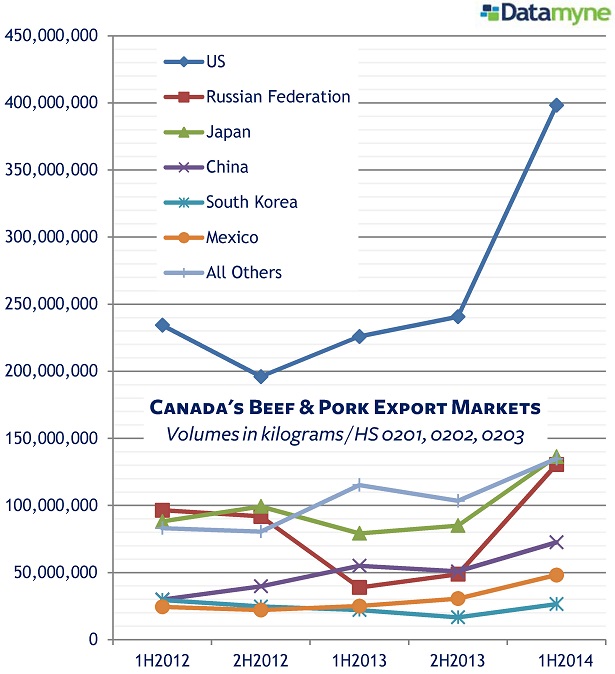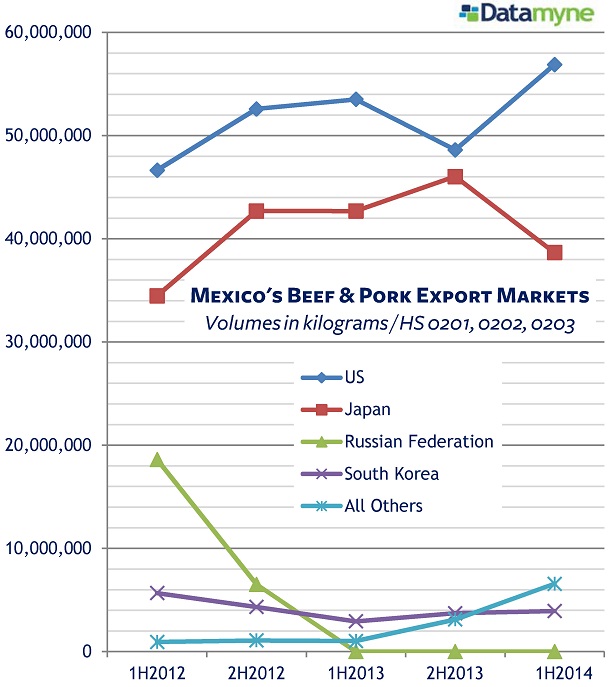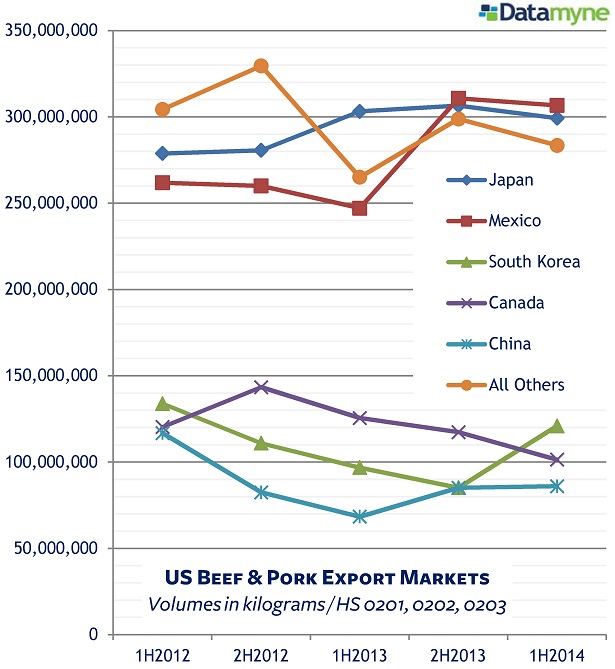Are the NAFTA partners getting set to trade sanctions instead of imports and exports?
The US is being urged to drop its country-of-origin labeling requirement for imported meat and livestock following the World Trade Organization’s decision in favor of the Canadian and Mexican case against the COOL rule that took effect in 2013 – and before Canada and Mexico impose retaliatory tariffs. Mexico and Canada are top destinations for US meat exports – as the US is for Mexican and Canadian meats (see the graphs below).
Canada and Mexico charge, and now the WTO rules US COOL puts a big thumb on the scale in favor of US beef and pork over their products in the US domestic market.
Specifically, it violates the Technical Barriers to Trade (TBT) Agreement, to which all parties subscribe, by necessitating the segregation of beef and pork (on the hoof or trotter) by country of origin, by adding to the recordkeeping burden on imports, and by increasing the incentive to choose domestic over imported product in the US.
Disagreeing with the complainants, the WTO concluded that the labeling does indeed perform its stated function of providing US consumers with information on where their food is from.
The current US COOL rule replaces a 2012 version that was also supposed to overcome similar objections. That, too, failed to pass muster with the WTO. The original rule was authorized by the Farm Security and Rural Investment Act of 2002. There are COOL requirements for seafood, fruits, nuts and vegetables as well, but the controversy centers on meat labeling.
The WTO decision certainly puts the wind at the backs of food industry opposition to labeling. Says National Cattlemen’s Beef Association president Bob McCan: “COOL is a failed program that will soon cost not only the beef industry, but the entire US economy, with no corresponding benefit to consumers or producers.” The trade group points to the list of US products, including beef, pork, wines, apples and ketchup, that Canada says will be hit with tariffs if the US continues to insist on COOL. Mexico has also threatened retaliatory sanctions on US exports.
The Beef Association is among the trade associations and companies in foods and beverages that have formed a COOL Reform Coalition to urge Congress to rescind the regulation.
Primary support for COOL comes from consumer advocacy groups. But there are industry supporters as well. National Farmers Union president Roger Johnson says the US can and should appeal the WTO decision. “American consumers want to know where their meat and vegetables come from and family farmers and ranchers are happy to provide that information.”
Johnson adds that punitive tariffs are not a likely outcome of this dispute among the NAFTA partners.
Related:
- Datamyne Offers Canadian Import-Export Trade Data
- Download our free report: Quick Look @ NAFTA Import-Export Trade in 2013






